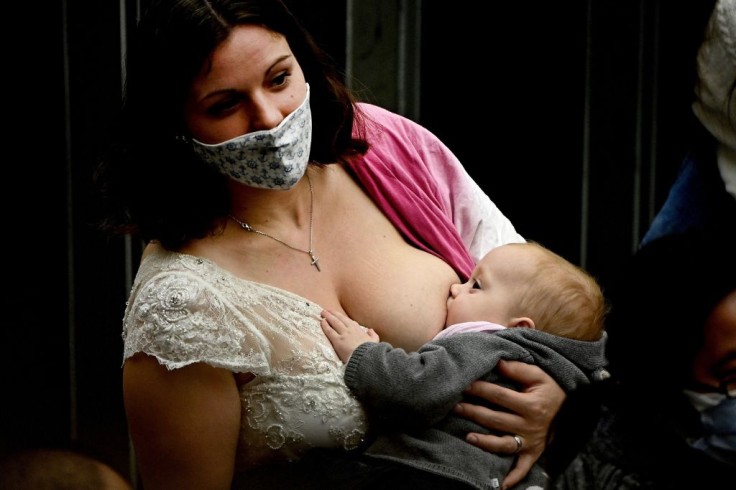
All 50 mothers from Seattle, who were part of a study on a concerning trend, were found to have breast milk containing toxic "forever chemicals" or PFAS (per- and polyfluoroalkyl substances).
Researchers from Seattle Children's Research Institute, the University of Washington, and Indiana University, detected the chemicals in the mothers' breast milk amid presumptions that PFAS use is on the rise. The findings confirmed the scientists' worst fears: PFAS builds up in human bodies and brings more potential harm to children.
The Seattle moms who volunteered to have their breast milk tested for PFAS showed levels of toxic forever chemicals that have been described as unsafe. The experts detected nine current-use compounds and 39 other variants, which are understood to be phased-out PFAS.
Study co-author Dr. Erika Schreder said that they should not be finding traces of PFAS in the mothers' breast milk since this will have serious outcomes for the babies, whose metabolism and immune systems could be greatly affected. The scientists published their findings and recommendations in the journal Environmental Science and Technology.
How PFAS Got Into Breast Milk
But how did the PFAS end up in the mothers' breast milk?
PFAS has over 4,000 classes that could last for a long time in any environment. It is found in wide-ranging products like drinking water, nonstick pans, cosmetics, rain gear, stain-protected sofa cushions, and even firefighting equipment. Exposures to this toxic forever chemical can happen easily since everyone uses most of these common household items with PFAS.
The chemical works to linger in the body and cause a toxic build-up that, over time, can put babies at risk for developing health problems like weakened immune system function, disruption of the thyroid hormone, high cholesterol, or cancer.
Vera Harrington, one of the study participants, said that it upset her to discover that her breast milk has toxic content. Despite her best efforts to protect her baby's health, simply buying a new sofa or furniture might expose her child to the risks.
"Moms work hard to protect their babies, but big corporations are putting these, and other toxic chemicals that can contaminate breast milk, in products when safer options are available," Schreder said, adding that a wider phaseout of PFAS must be undertaken.
Regulations for PFAS
Washington has a Safer Products for Washington Act, which was established to restrict and remove harmful chemical products that should be replaced with alternatives. However, the experts said there should be a national regulation preventing PFAS in products used every day.
The recommendation has the support of the Toxic-Free Future. Laurie Valeriano, the advocacy group's director, said that the federal government must take the lead in banning PFAS and promote alternatives.
At the House of Representatives, Rep. Debbie Dingell plans to re-introduce a bill banning PFAS in all food packaging. Some retailers are also taking ethical steps to limit PFAS exposures by ditching or phasing out products that may contain toxic forever chemicals.
On the other hand, the study experts said that breast milk is still highly recommended for babies despite the findings of the study. This should not discourage mothers from feeding their babies their most natural, nutritious gift.
Related Article: New Guidelines for Infants With Fever Released; What You Should Know